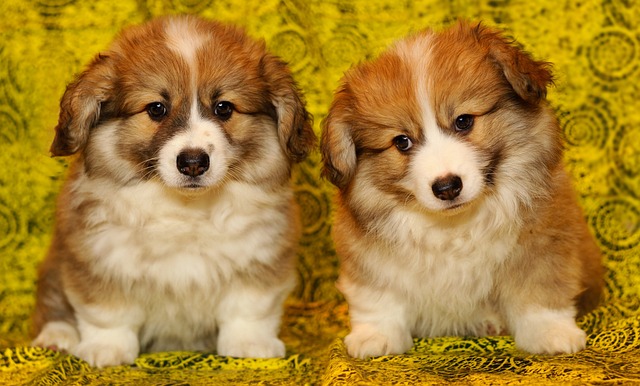
What is glaucoma in a dog?
You might notice your dog squinting more at mealtime or avoiding bright sunlight—these small changes could be early signs of a serious eye condition.
When we joyfully welcome a little dog into our home, its cute appearance and lively actions can instantly melt our hearts. But what often comes with it is the small annoyance of dogs defecating and urinating everywhere, which makes us curious: how many months does it take for dogs to urinate and defecate regularly? This question is not only related to the cleanliness of the home, but also to the healthy growth of dogs, requiring us to explore the answer with scientific knowledge and full love.
During the infancy of dogs, their urinary and digestive systems are still developing. Generally speaking, puppies aged 1-3 months have almost uncontrolled urination and defecation. Like human infants, they have not yet developed the ability to autonomously control excretion. Puppies at this stage will soon feel the urge to defecate after eating, and due to their small bladder capacity and limited ability to store urine, they need to excrete frequently. Imagine a cute little puppy that, after playing with it for a while, suddenly solves its "physiological needs" in a corner. This is a very normal phenomenon, as their bodies are still struggling to grow and adapt.
Starting from 3 months, dogs' bodies gradually develop and they begin to have a certain level of control ability. But in order for them to fully develop regular urination and defecation habits, they still need the owner's patient guidance and training. At this stage, the dog's brain begins to understand some simple commands and signals, and we can use this to help them establish good excretion habits. For example, about 15-30 minutes after the dog eats, take it to a fixed defecation location, such as a corner with a urine pad or a pet bedpan. If a dog defecates in the right place, reward it promptly by praising it in a gentle tone and giving it a small snack as encouragement. Dogs are very intelligent animals, and they quickly understand that excreting in this specific place will receive recognition and rewards from their owners.
By about 6 months, most dogs have basically mastered the regular habits of urination and defecation. At this point, their physical development is more mature, and the functions of the bladder and intestines are more complete, allowing for better control of excretion time. But this does not mean that the owner can completely relax their vigilance. The living environment and daily routine of dogs also have a significant impact on their urination and defecation habits. If a dog's diet, activity level, or living environment is suddenly changed, it may cause them to experience temporary irregular urination and defecation. For example, when you take your dog on a trip and change to a new accommodation environment, it may experience defecating and urinating everywhere due to discomfort.

In addition to physical development, the breed of a dog can also have a certain impact on the formation time of bowel movements. Some small dogs, such as Chihuahuas, Pomeranians, etc., may need to excrete more frequently due to their relatively fast metabolism, and may require more patience and time from their owners to develop regular urination and defecation habits. Large dogs, such as Golden Retrievers and Labrador Retrievers, although have relatively fast physical development, require careful guidance and training from their owners due to their large appetite and high amount of excrement after digestion, to ensure that they can excrete at the appropriate time and place.
In the process of developing regular urination and defecation habits in dogs, the attitude of the owner is crucial. When a dog accidentally defecates or defecates at home, do not beat or scold it. Beating and scolding not only fail to make dogs understand their mistakes, but can also make them feel fearful and uneasy, and may even lead to holding urine and stool, which is very detrimental to their health. We should guide dogs to recognize the correct excretion location in a gentle way. For example, when a dog shows signs of excretion, quickly carry it to a fixed defecation location; If it has already been excreted elsewhere, use a specialized pet deodorizer to thoroughly remove the odor and prevent the dog from excreting in this area again.
Watching the dog go from being naive and ignorant at the beginning to gradually learning to urinate and defecate in a fixed place, every progress makes us feel immensely gratified. Dogs give us unconditional love and companionship, and as they grow up, we need to use patience and care to help them develop good habits. In the days spent with dogs, let us take care of them with our hearts and let them grow up healthy and happy in a warm and comfortable environment. How many months did your dog develop a regular habit of defecating and urinating? Are there any interesting stories or unforgettable experiences during the training process? Welcome to share, let's harvest more warmth and emotion together on the road of caring for dogs.

You might notice your dog squinting more at mealtime or avoiding bright sunlight—these small changes could be early signs of a serious eye condition.

Let’s set the scene: It’s a sweltering Phoenix afternoon—105°F outside—and you rushed your 2-year-old Lab mix, Cooper, on a quick walk to “get it over with.”

Let’s get real: You’re in your Miami apartment, watching your 3-year-old Corgi, Loki, struggle to climb the stairs to your second-floor unit.

Many dog owners brush off occasional scratching as just “dog behavior,” but persistent itching often signals something more—like a food allergy.

You might first notice your dog scratching more than usual—chewing at their paws until the fur looks thin, or rubbing their face against the couch nonstop.

Let’s be real: You’re standing in your Chicago apartment, watching your 3-year-old Beagle, Max, huff and puff just to climb onto the couch.